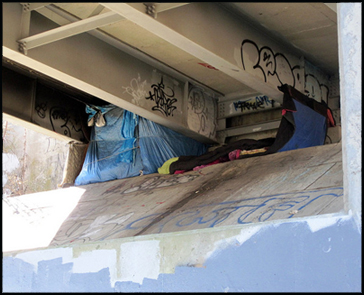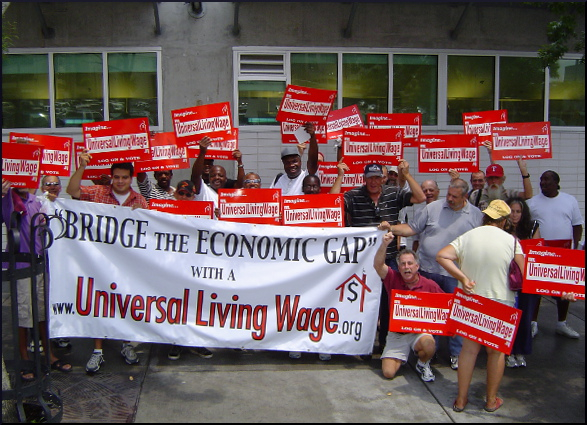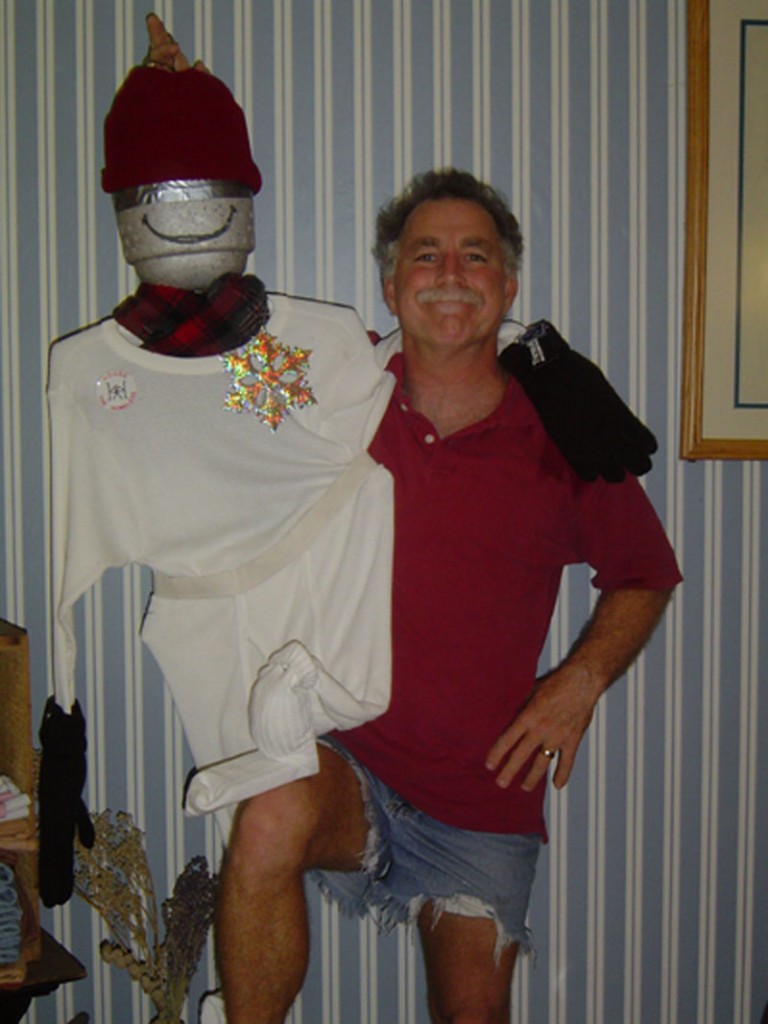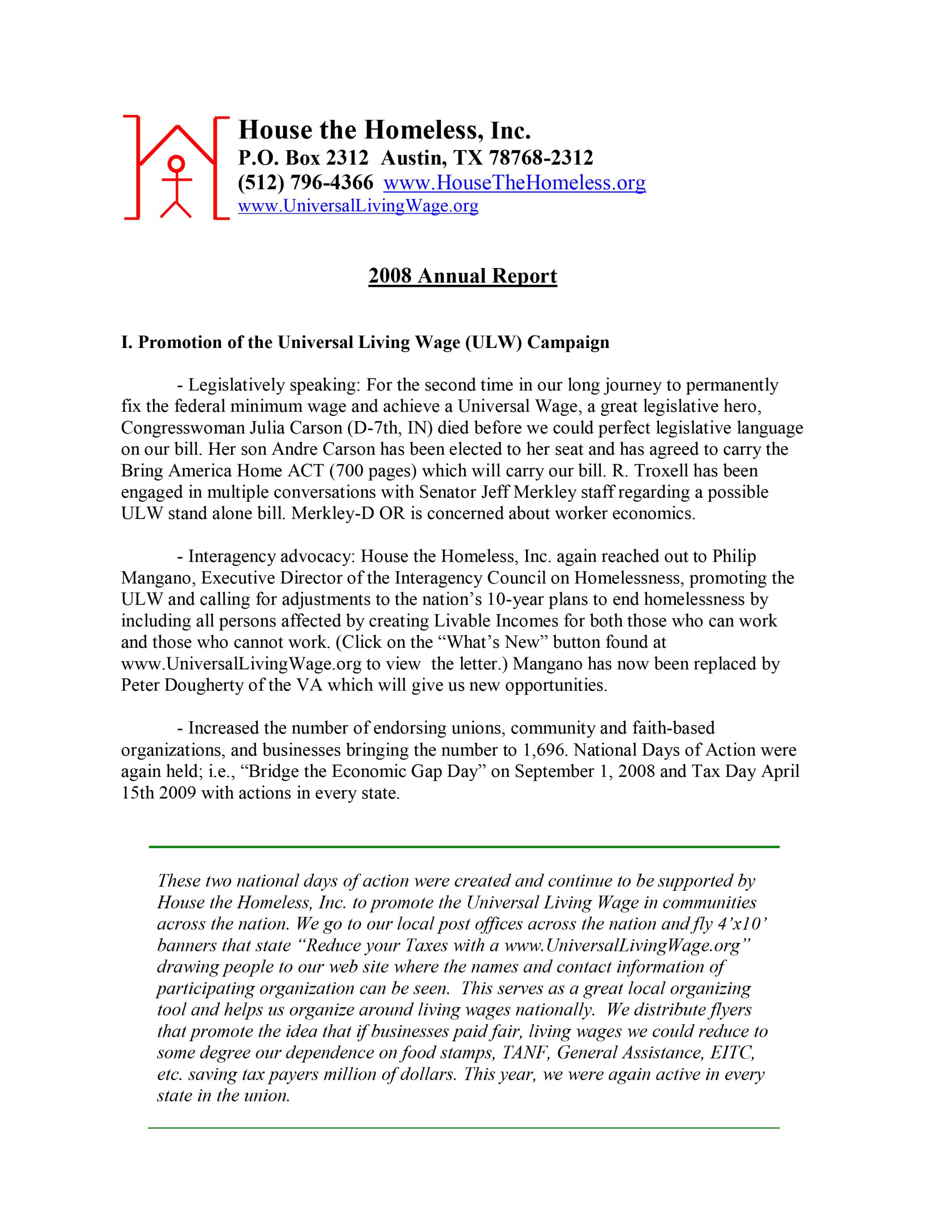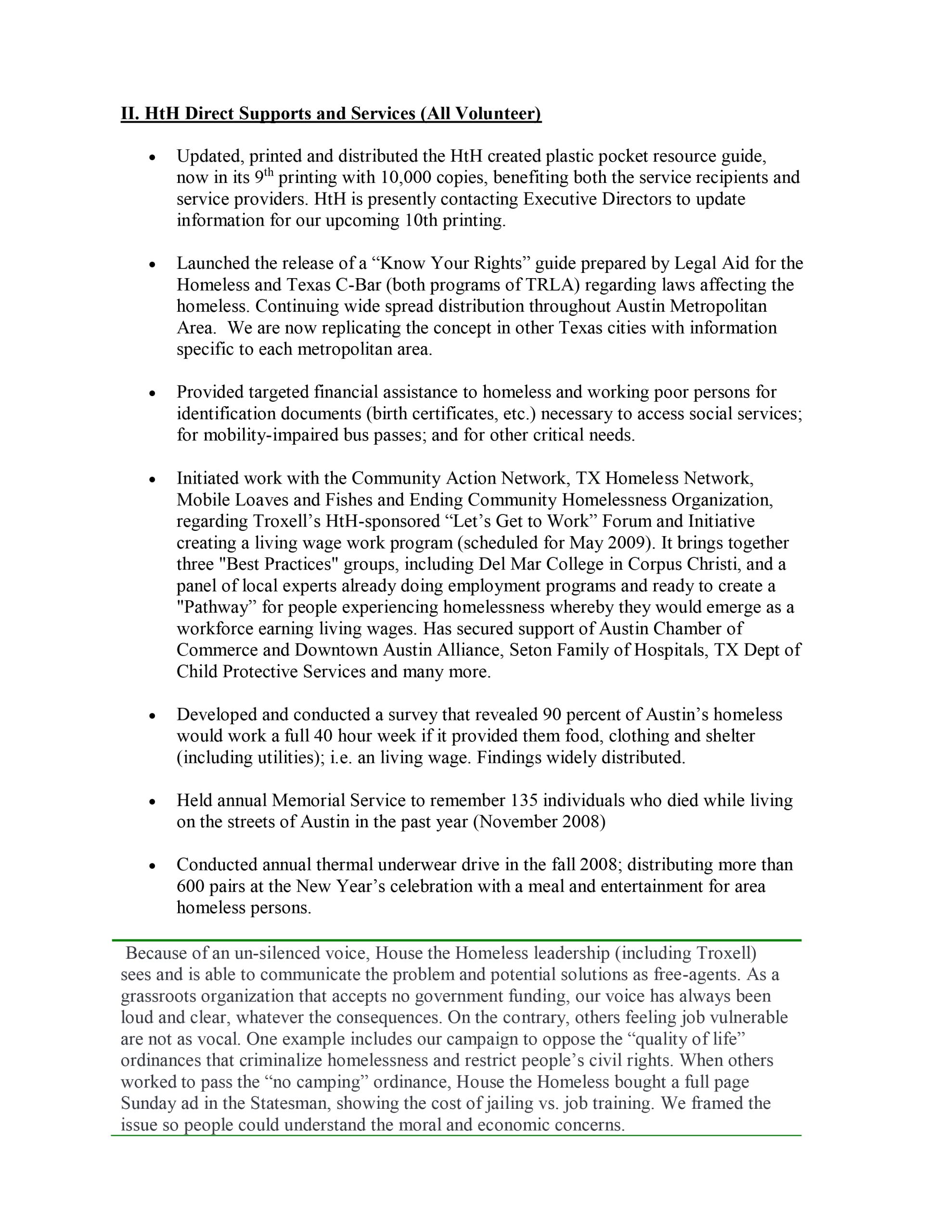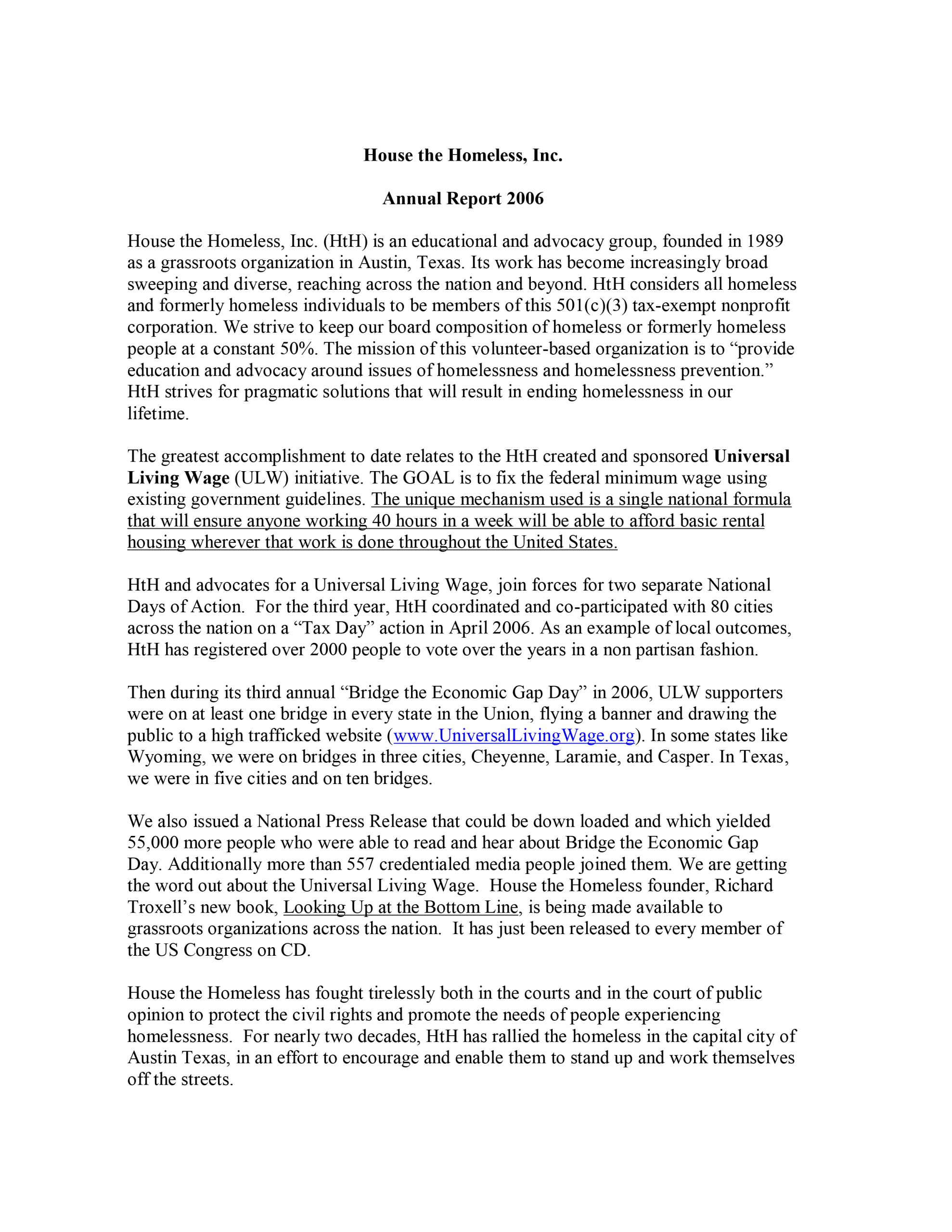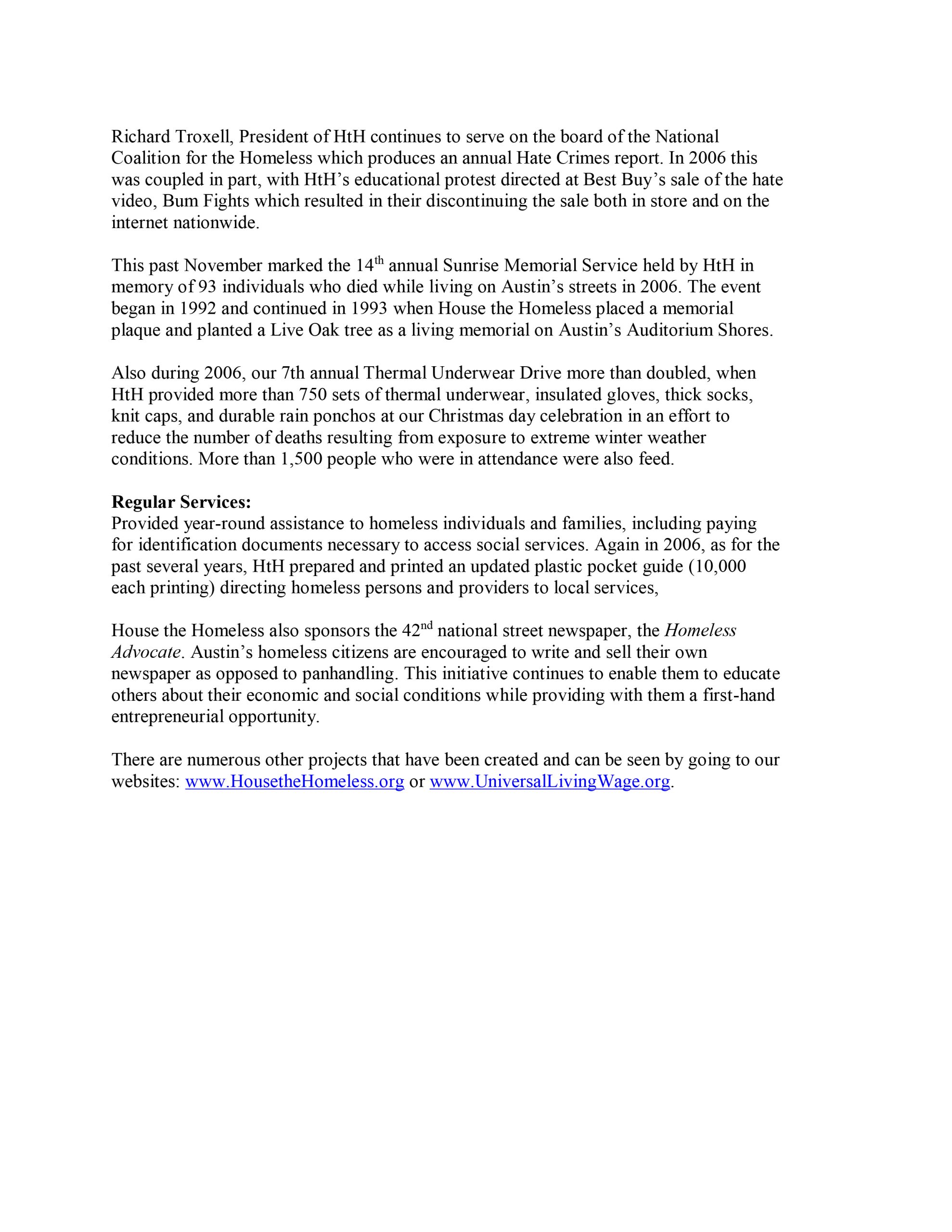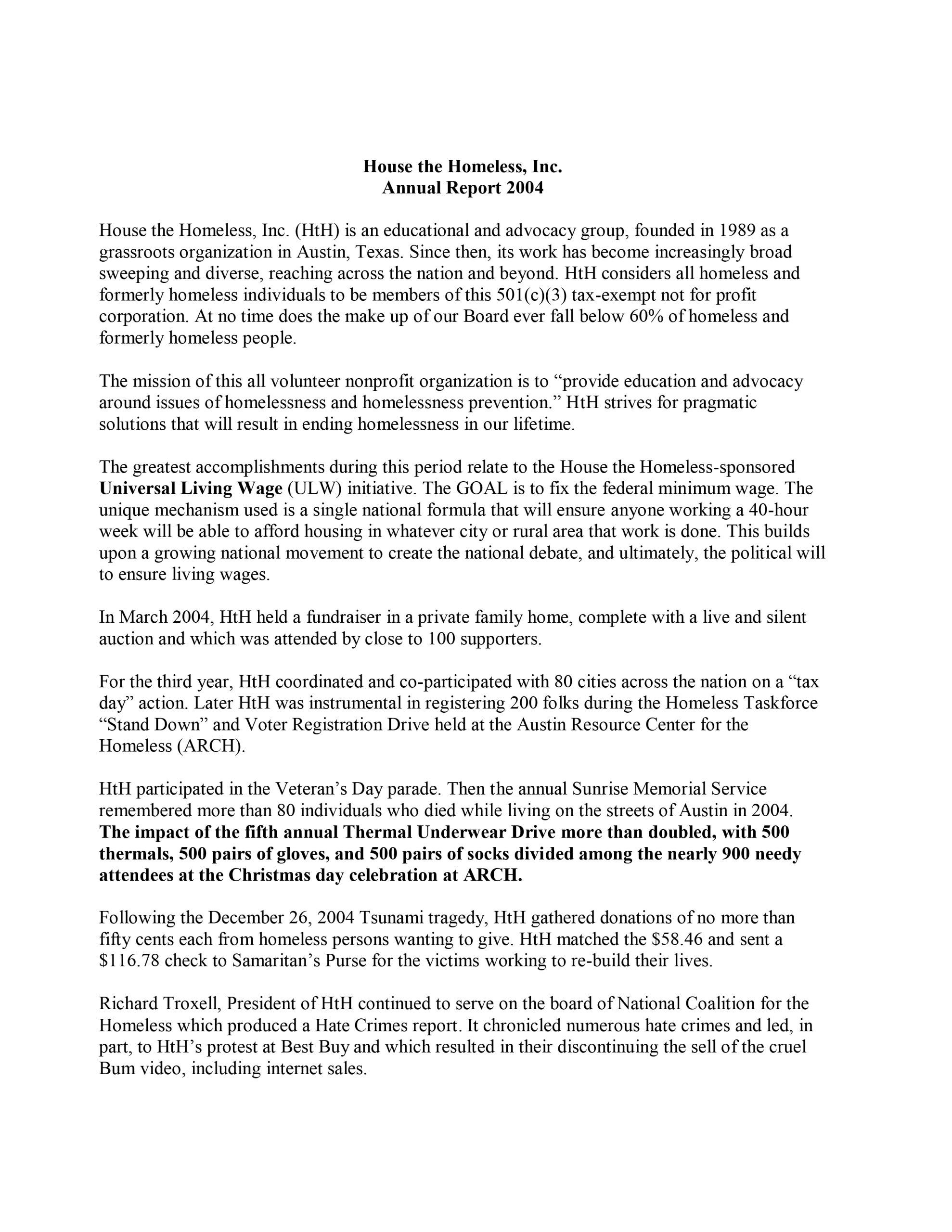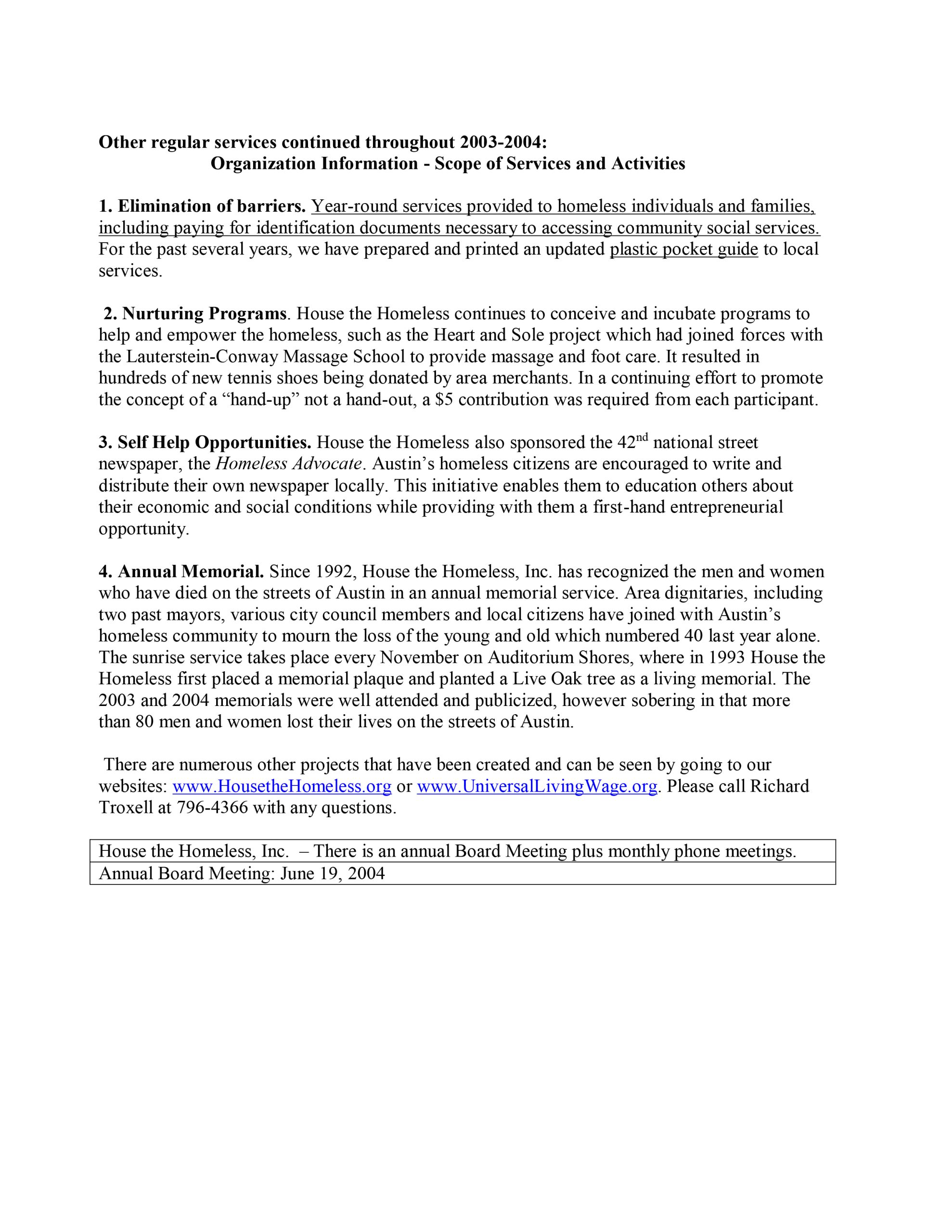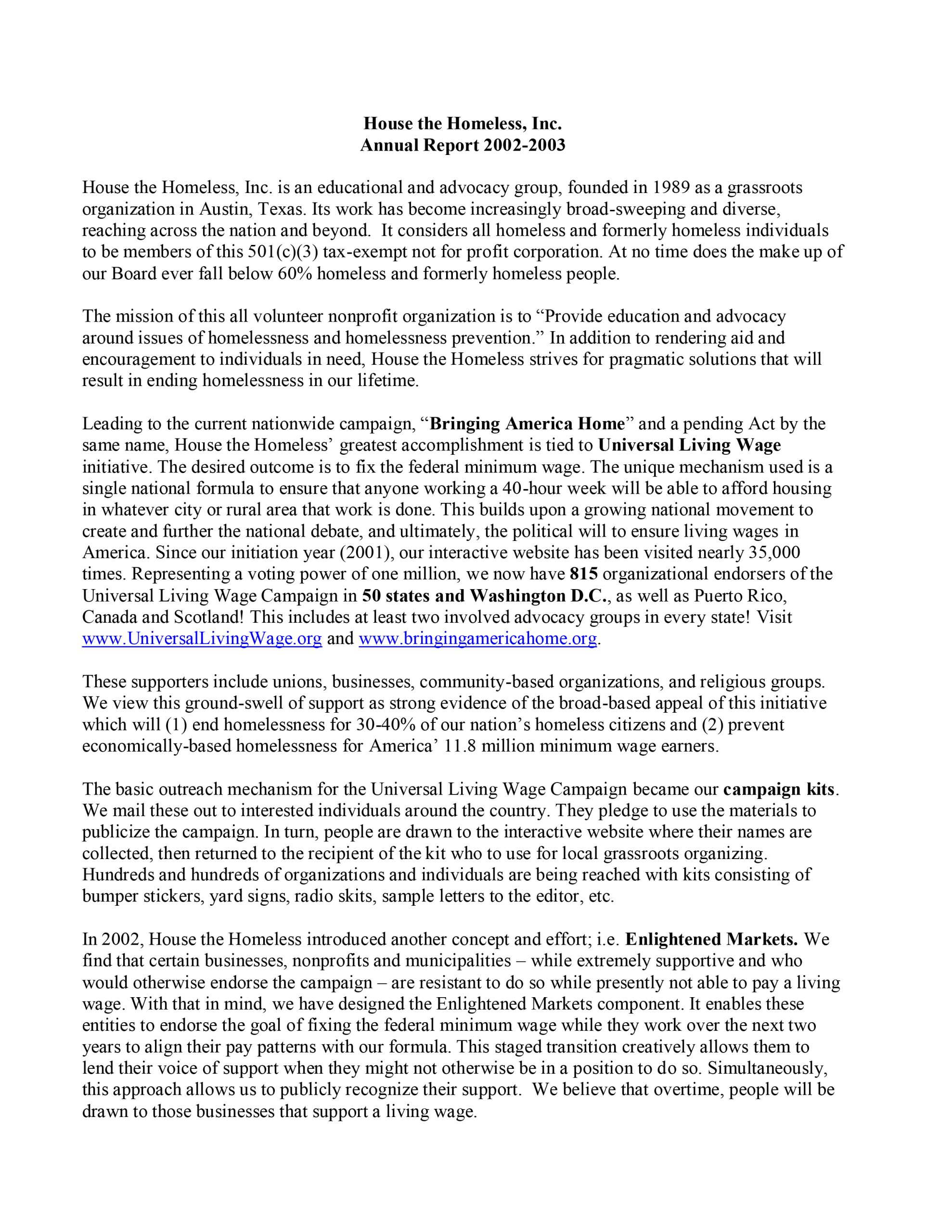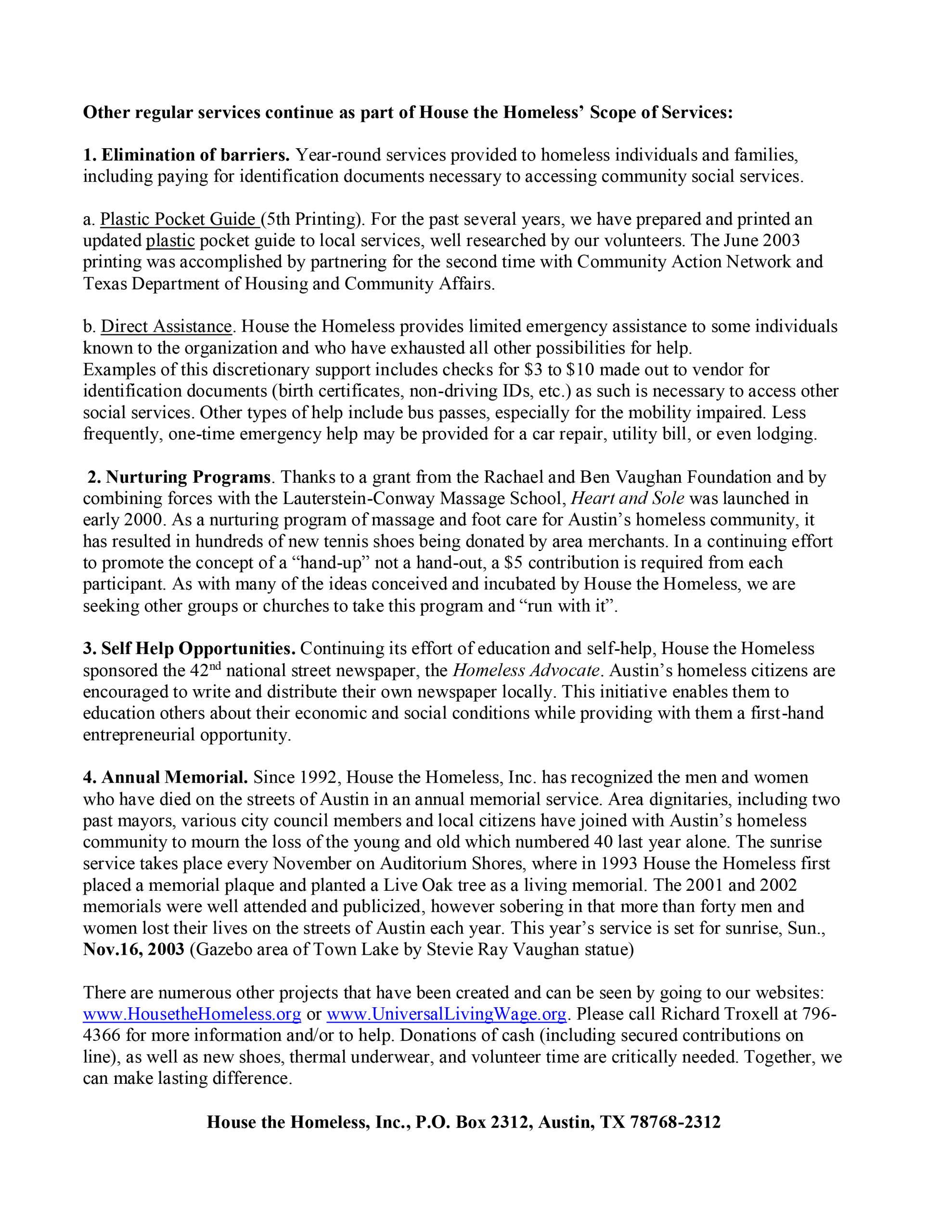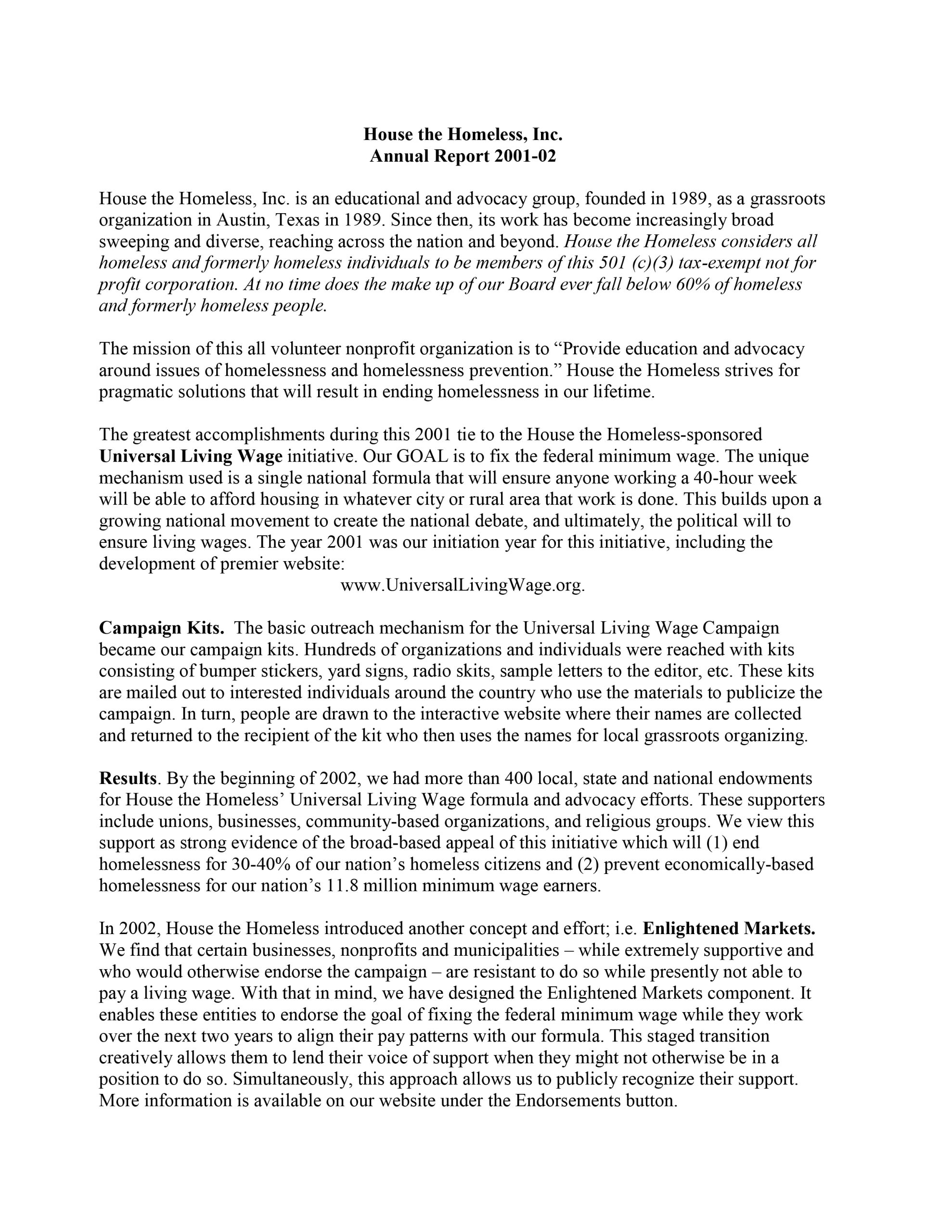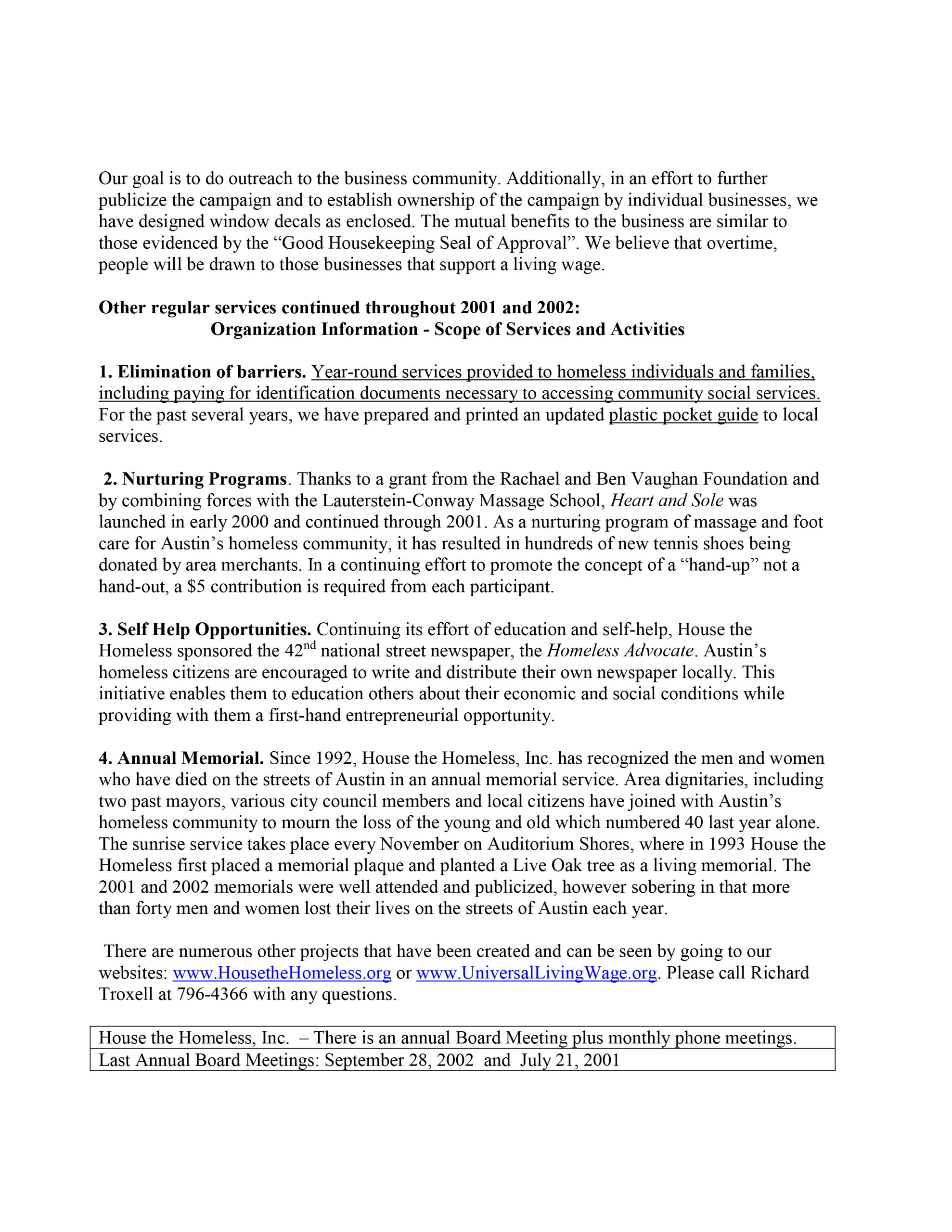January 7, 2008
House the Homeless Smashes Homeless Myth
— House the Homeless, Inc. & Keep Austin Housed AmeriCorps Survey Report 1/7/08
On December 25, 2007, House the Homeless and Americorps joined forces at the House the Homeless 8th Annual Thermal Underwear Distribution Party and conducted a survey. Invited to participate were over 600 people who were provided life saving thermal underwear and other winter clothing. 526 people experiencing homelessness voluntarily responded to the survey. Note. A total of 19 additional surveys were discarded as being unintelligible.
Survey Results —
Q: Do you work?
yes: 199
no: 327
non-responses: 0
37.8% are working.
Hours of work ranged from 2-3 hours per day to 40+ per week
Q: Do you want to work?
yes; 472
no: 48
6 non-responses
89.7% want to work.
Of those responding, 90.8% want to work.
Q: What is keeping you from working?
Ranked in order of highest importance:
health issues 62
can’t find work 60
disabled 56
no identification 50
economics/ low wages 21
“me” 18
transportation 17
criminal history/legal 16
need tools/clothes 10
lack experience/education 7
retired/age 6
weather 5
day care 4
new to area 4
personal problems 4
time 2
undocumented 2
ethical concerns 1
Note: Several people cited more than one barrier.
Q: Would you work a 40 hour week job if you were sure it would pay you enough for basic food, clothing, and shelter?
yes: 468
no: 48
non-responses: 10
89% would work a 40 hour week for living wages.
Of those responding, 90.7% would work 40 hours for a living wage.
Q: Do you get disability benefits?
yes: 100
no: 426
non-responses: 0
19% receive disability benefits.
Q: Do you have photo ID?
yes: 360
no: 164
non-responses: 2
31.2% need photo identification.
Of those responding, 31.3% need photo ID.
Q: What is keeping you from getting ID?
Ranked in order of highest importance.
1. need ID documents to get photo ID 39
2. costs 38
3. application pending 8
3. no reason “me” 8
3. criminal record 8
4. don’t want to miss work 2
5. hopelessness 1
5. time 1
5. health issue (brain injured) 1
Q: Are you a Veteran?
yes: 121
no: 401
non-responses: 4
23% are Veterans.
Of those responding, 23.2% are Veterans.
Note: 399 signed the survey with either their first name, last name, or both. This was optional.
Note: Statistical significance of the survey:
The Austin Area Homeless Task Force counted 4,000 people experiencing homelessness in the Austin Area in 2007. With 526 homeless people surveyed, 13.1% of the population was sampled.
If the population of people experiencing homelessness is 6,000 then 8.76% of the population was sampled.
Richard R. Troxell, President of House the Homeless, Inc has declared these to be “Stunning results with national implications!” He went on to say that “Although homeless, over 38% of of these people are working at some point during the week. This means that the Puritan Work Ethic is in tact. Furthemore, it is now clear that what is lacking for many of them to end their homelessness is a Living Wage Job.”
Mr Troxell is also the National Chairman of the Universal Living Wage Campaign.

